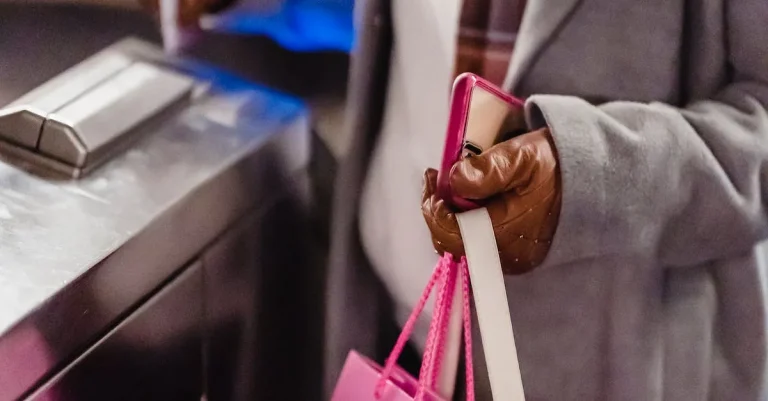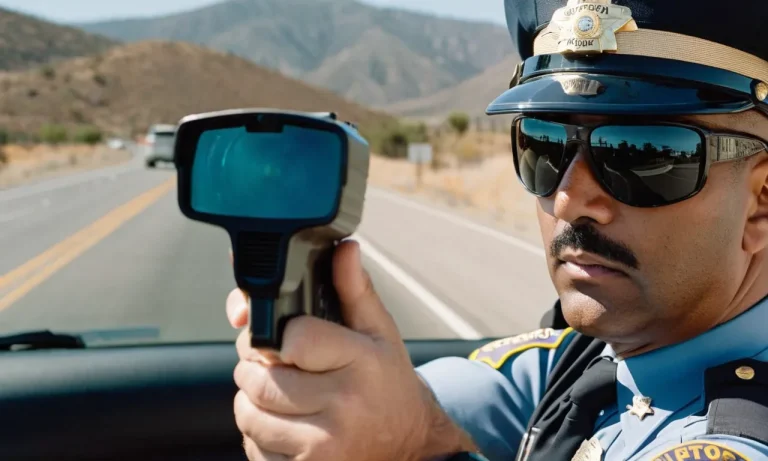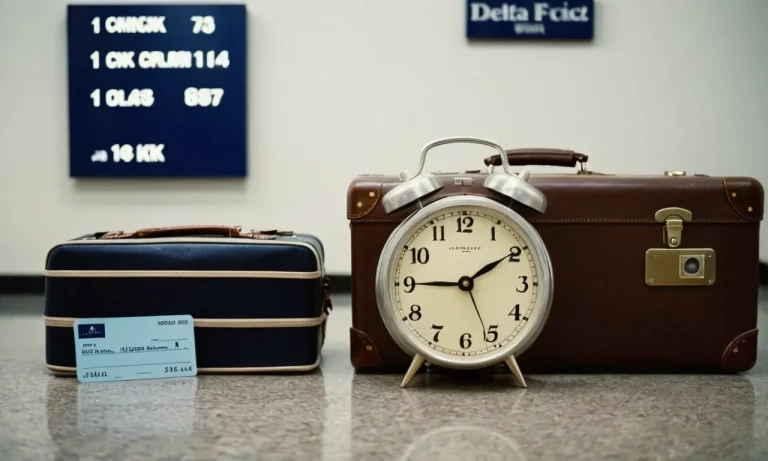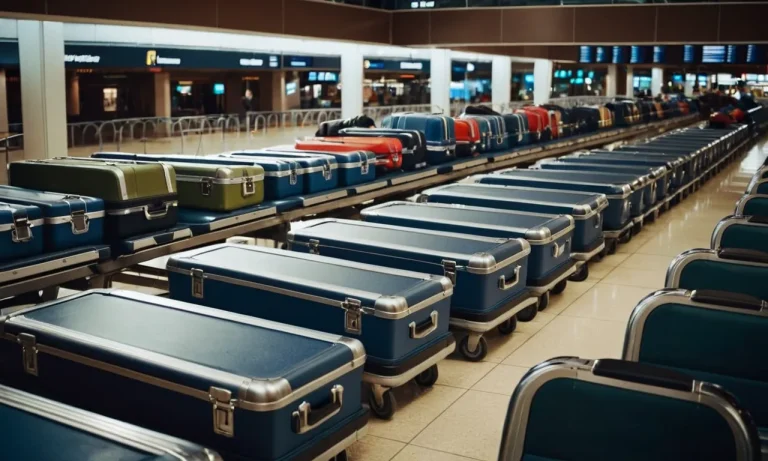Traveling with cannabis can be nerve-wracking, especially when crossing state lines or flying. If you’re wondering what could happen if TSA finds weed in your checked bags during airport screening, you’re not alone.
If you’re short on time, here’s a quick answer to your question: If TSA discovers cannabis in checked luggage, they will typically contact local law enforcement, who may choose to investigate further.
However, possession of small personal-use amounts of cannabis is unlikely to result in criminal charges in states where it is legal.
In this comprehensive guide, we’ll walk through everything you need to know about flying with cannabis, what rights TSA agents have to search your luggage, the potential penalties if illegal drugs are found, and tips for minimizing risks when traveling with weed.
TSA’s Authority to Search Checked Bags
When it comes to airport security, the Transportation Security Administration (TSA) plays a crucial role in ensuring the safety of passengers and preventing any potential threats.
One important aspect of their job is to screen and search checked bags. But what gives them the authority to do so?
TSA’s Screening Policies
The TSA has the legal authority to search checked bags under federal regulations. According to the Code of Federal Regulations, Title 49, Section 1540.111, the TSA is authorized to conduct security screening of all checked baggage.
This means that they have the right to open and inspect any bag that is being transported in the cargo hold of an aircraft.
It’s important to note that this authority is not limited to just searching for prohibited items.
The TSA’s primary goal is to prevent any potential threats to aviation security, which includes checking for dangerous items, substances, or devices that could pose a risk to the aircraft or its passengers.
What Items TSA Searches For
The TSA has a comprehensive list of prohibited items that are not allowed in checked baggage. These items include firearms, explosives, and flammable substances, among others.
While the list is extensive, it’s important to note that marijuana is also prohibited by federal law, regardless of whether it is legal in the state where the airport is located.
According to the TSA’s website, if a Transportation Security Officer (TSO) discovers marijuana or any other illegal substance during the screening process, they are required to report it to law enforcement.
The final decision on how to handle the situation rests with the local law enforcement authorities.
Advanced Imaging Technology
To enhance their ability to detect prohibited items, the TSA utilizes advanced imaging technology (AIT) scanners. These scanners use non-invasive methods to create detailed images of the contents of a bag.
This allows TSA officers to identify potential threats without the need for physically opening the bag.
The use of AIT scanners has significantly improved the efficiency of the screening process while maintaining a high level of security.
However, it’s important to note that these scanners do not have the capability to specifically detect drugs or identify the presence of marijuana.
They are designed to detect threats to aviation security in general.
Drug-Sniffing Dogs
In addition to AIT scanners, the TSA also employs drug-sniffing dogs to assist in the screening process.
These dogs are trained to detect the presence of various drugs, including marijuana.
If a dog alerts to a bag, it may lead to further inspection by TSA officers or law enforcement authorities.
It’s worth mentioning that the use of drug-sniffing dogs is not limited to just marijuana detection. These highly trained canines are also used to detect other illicit substances, such as cocaine, heroin, and methamphetamine.
What Happens When TSA Finds Drugs
Discovering illegal substances in checked luggage is a serious matter, and the Transportation Security Administration (TSA) has specific protocols in place to handle such situations.
When TSA agents detect drugs during the screening process, they immediately contact local law enforcement.
TSA Will Contact Local Law Enforcement
Once the TSA discovers drugs in checked luggage, they will alert the appropriate local law enforcement agency. This ensures that the matter is handled by professionals who are trained to deal with drug-related offenses.
The TSA’s primary responsibility is to maintain security in airports, and they rely on law enforcement agencies to handle criminal matters.
The involvement of local law enforcement also helps determine jurisdiction, as airports are often under the jurisdiction of multiple law enforcement agencies.
The confiscated drugs will be handed over to the police for further investigation and evidence preservation.
Factors Police Consider
When local law enforcement is notified about drugs found in checked luggage, they take into account several factors to determine the severity of the offense.
These factors may include the type and quantity of drugs, the intent behind carrying them, and the individual’s criminal history.
The police will conduct a thorough investigation to gather any additional evidence related to the case.
It is important to note that state laws regarding drug possession and transportation vary, and the severity of legal consequences can differ significantly from one jurisdiction to another.
Potential Criminal Charges
The potential criminal charges an individual may face if drugs are found in their checked luggage depend on various factors, including state laws and the quantity and type of drugs involved.
Possession of controlled substances with the intent to distribute is often considered a more serious offense than simple possession.
The penalties can range from fines to imprisonment, depending on the circumstances of the case.
If you find yourself in a situation where drugs are discovered in your checked luggage, it is crucial to consult with a legal professional who specializes in drug-related offenses. They can provide guidance and help navigate the legal process.

State Laws Regarding Cannabis Possession
When it comes to cannabis possession, laws can vary significantly from state to state in the United States.
While some states have legalized recreational use, others only allow medical use, and there are still states where cannabis is fully illegal.
Understanding the laws in each state is crucial, especially if you are traveling with cannabis in your checked luggage and it is discovered by the Transportation Security Administration (TSA).
Recreational States
In states where recreational use of cannabis is legal, such as California, Colorado, Washington, and Oregon, possessing small amounts of marijuana is typically allowed.
However, it’s important to note that these laws apply only within the state’s borders.
If you are traveling from one recreational state to another, it is generally tolerated to have cannabis in your checked luggage as long as you comply with local possession limits.
It’s worth mentioning that even within recreational states, there may be restrictions on where you can consume cannabis.
For example, public consumption is often prohibited, and it is advisable to consume it in private settings to avoid any legal issues.
Medical-Only States
Medical-only states, such as Arizona, Florida, and New Jersey, have legalized cannabis for medicinal purposes only. In these states, possession of cannabis without a valid medical card can lead to legal consequences.
If you are traveling with medical marijuana, it is essential to carry your medical card and be aware of the specific regulations in the destination state.
Some states may require reciprocal agreements, while others may not recognize out-of-state medical cards at all.
Additionally, it is important to note that while TSA’s primary focus is on security, they are required to report any illegal substances they find to local law enforcement.
So, even if you have a valid medical card, you may still encounter issues if you are traveling to a state where medical cannabis is not recognized.
States Where Cannabis is Fully Illegal
In states where cannabis is fully illegal, such as Idaho, Kansas, and South Dakota, possession of any amount of marijuana can result in criminal charges.
Traveling with cannabis in your checked luggage in these states is highly discouraged, as it can lead to serious legal consequences.
It’s important to check the laws of each state you are traveling to or through and avoid carrying any cannabis products to avoid potential legal troubles.
It is always recommended to research the laws of the state you are traveling to and consult official government websites or legal professionals to ensure compliance with the local regulations.
The cannabis laws are continually evolving, and it’s crucial to stay informed to avoid any unwanted surprises during your travels.
Flying with Weed: Tips to Minimize Risks
Traveling with marijuana can be a tricky situation, especially when it comes to flying. While some states have legalized the recreational use of marijuana, it is still illegal under federal law.
This means that if you are caught with weed in your checked luggage at the airport, you could face serious legal consequences.
To avoid any potential problems, here are some tips to minimize the risks when flying with weed.
Know Your Rights
Before you embark on your journey, it is important to familiarize yourself with the laws and regulations regarding marijuana in both your departure and destination locations.
While some states may allow the possession of marijuana, airports are governed by federal law, which prohibits the transportation of marijuana across state lines.
It’s crucial to understand the potential consequences you may face if caught with weed in your luggage.
Fly Direct When Possible
If you are planning to travel with marijuana, it is advisable to book direct flights whenever possible. This reduces the number of security checks your bags will go through, minimizing the chances of your weed being discovered.
Additionally, flying direct also reduces the risk of your luggage getting lost during layovers, which could potentially lead to your marijuana being found by airport staff.
Carefully Pack Carry-On vs Checked Bags
Deciding whether to pack your marijuana in your carry-on or checked bag requires careful consideration.
While the TSA primarily focuses on security threats such as weapons and explosives, they do have the authority to report illegal substances to law enforcement.
If you choose to pack your weed in your carry-on, there is a higher chance that it will be discovered during the security screening process.
On the other hand, if you pack it in your checked bag, it may be less likely to be detected, but there is still a risk of it being found during baggage inspections.
Purchase After Landing
One of the safest ways to minimize the risks of flying with weed is to simply purchase it after you have landed at your destination.
This eliminates the need to transport it across state lines, reducing the chances of encountering legal issues.
By purchasing marijuana locally, you can ensure that you are complying with the laws of the state you are visiting, as well as avoiding potential problems at airport security.
Remember, it is always important to prioritize your safety and legality when traveling.
While it may be tempting to bring your own marijuana on a trip, it is essential to consider the potential consequences and make informed decisions.
Be sure to research the laws and regulations of both your departure and destination locations before deciding to fly with weed.
What to Do if Questioned About Cannabis
Cooperate Politely
If you find yourself being questioned about cannabis by TSA (Transportation Security Administration) or any other law enforcement agency, it is crucial to remain calm and cooperate politely.
Remember, the agents are just doing their job to ensure the safety of all passengers.
Getting aggressive or confrontational will only make the situation worse. Instead, stay calm, answer their questions respectfully, and follow their instructions.
Don’t Admit to Possession
If questioned about cannabis, it is important not to admit to possession, especially if you are traveling to or from a state where it is illegal.
Admitting to possession can lead to potential legal consequences and may complicate the situation further.
Even if you have a valid medical marijuana card, it is advisable not to disclose it unless specifically asked by law enforcement.
Request a Lawyer If Charged
If you are charged with possession of cannabis or any related offense, it is crucial to remember your rights. You have the right to remain silent and the right to legal representation.
If you are being detained or arrested, politely request to speak with a lawyer before answering any further questions.
A lawyer will be able to guide you through the legal process and ensure that your rights are protected.
Conclusion
While legalization is spreading, cannabis remains illegal at the federal level and transporting it across state lines comes with risks.
Understanding TSA’s screening policies, being aware of local laws, and taking precautions with how cannabis is packed can help reduce the chances of legal trouble when traveling by air.
With some preparation and knowledge ahead of time, it is possible for medical and recreational consumers to travel with cannabis safely and responsibly.
Always abide by TSA guidelines, know your rights, and consult a lawyer if you find yourself in a difficult situation.






